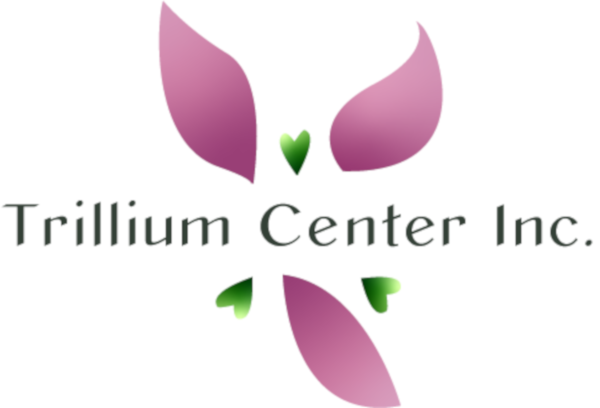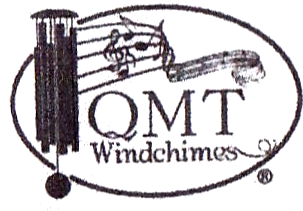YOTP Diversity Stories
Msafiri Yoko Makembe - My Recovery and Passion for Music
I consider myself an artist, and I hope this literature paints an accurate picture of me to supplement the
reader’s recovery journey as positive support and hope. I adore music and the wonders many musical
artists have instilled in me throughout my experiences. One may conclude that I shelter behind the
rhythms and beats I listen to daily to ease my automatic negative thoughts due to mental illness.
My name is Msafiri Yoko Makembe and I experience post-traumatic stress disorder and schizoaffective
disorder. I am an East-African in America who discovered music in my elementary school years in the
South. When my mother lost her job, she gifted me her office radio/alarm, which I adored. Every night,
I tuned into pop/rhythm and blues stations to help me get the rest needed for a nine -year old in the 3rd
grade. The smooth melodies created by many of my favorite musicians would send neurotransmitters
along the millions of synapses in my nervous system signaling a time for escape and dreaming.
I needed this escape from the physical and mental abuse I endured from a violent father between the
ages of two and nine. My mother gathered her belongings and children one night in 1986 to leave my
father in search of more peaceful pastures. My sister, Malaika, my mother, Josephine, and I moved in
with my uncle, Victor, and aunts, Lucy, and Annie for safety and comfort. My mother’s siblings
introduced me to new age music like the Pat Metheny Group and Enya.
I did not realize that music would ignite a healing pathway to sustain me through life events that would
bring the strongest man to their knees. As an adult, I lost my job, I got sick, and thought my family was
behind it all. Music provided the protection required to aid me amidst emotions of anger, doubt, low
self-esteem, solitude, and suicidal ideation. I received mental health care from community services
more openly because music helped me stay in rhythm. Music also complimented my grit to keep
fighting for wellness, no matter the obstacles. I pay tribute to peer support and cognitive processing
therapy.
As I compose this essay, I am listening to a meditation station on the Pandora Music streaming
application. I am not alone in my recovery or in my love for music. There is no one method to recover,
and, for me, listening to my favorite tunes gives me the calm, the inspiration, and the ease of mind to
have a positive day. My maternal grandfather and paternal grandmother, would be sincerely proud of
me.
Jessica
When I think about how my diverse background impacted my recovery journey the first word that
comes to mind is: invisible. While I am a woman, which places me in a minority group, I have so
many more hidden diverse groups that I identify with that people do not see daily. Until I started
to think about diversity, I did not realize how impactful this has been on my recovery.
I am a
former clinician on a recovery journey, I have an SMI diagnosis as well as a substance use disorder,
and I have fibromyalgia. While I could focus on how my recovery journey has been negatively impacted
by these additional hurdles, I try to remind myself how each gives me strength. With each unique
challenge presented to me I have a different perspective on life and can build resiliency. I do not
let a label define me as I could continue to add label after label to my identity and bury myself in
labels. I try to give myself grace and work toward the life I want to live. Some days are harder
than others. Some days I feel like my story does not make my recovery journey as meaningful as
individuals who have a visibly diverse background. Then I try to remember how many other people
are out there who feel the same way I do and that makes my story even more important to tell.
I am worthy. We are all worthy of love, acceptance, and recovery.
Risa - Supporting the Adoptee and Foster Experiencers
What happens when a person has experienced being placed in foster care or being adopted? There isn’t one
simple answer, but statistics show that the effects are far reaching and deep. Did you know that children
in foster care:
- are seven times more likely than non-foster youth to have Depression, and
- five times more likely to have Anxiety.
- In comparison to veterans, former foster youth are twice as likely to suffer from Post-Traumatic
Stress Disorder.
Read that last one again!
And that adoptees:
- Without resolution of the developmental trauma as a child, adopted individuals could have the
symptoms of post-traumatic stress disorder and complex PTSD as adults.
- Adoptees are four times more likely to attempt suicide than non-adoptees.
- Adoptees are over represented in the juvenile criminal system, prison system, psychiatric institutions,
drug and alcohol rehabilitation settings.
Because of the emotional and mental health challenges that children “in the system” manifest - and into adulthood,
it is easy to think we are innately flawed. But it’s important to know that abuse and neglect are rampant in the
foster/adoptee community. So, where does the problem lie?
I can only speak from experience and what I have witnessed. I was adopted. I had an adopted, non-biological
older sister. I also had a foster sister who lived with us for one year and a foster brother who lived with
us for 8 years. Me, my sisters and brother, which is how I always feel about them, were “outsiders”. We
followed an unwritten understanding to never talk about our pain, grief, or voice any questions about our
natural families. We were treated very poorly by extended family and by neighbors as well as teachers. We all
experienced what felt like living in a strange void. Everything was secret and had to be kept that way. To
this day, at middle age, I am still not allowed to access my birth records. The powerlessness and
infantilization continues.
It’s important to know that abuse and neglect are rampant in the foster/adoptee community. Although
statistics are contradictory, I would venture to agree based on the many people I’ve known who were adopted
or in foster care. I know that people raised with their birth families can experience abuse and trauma, too.
I contend that being adopted/fostered magnifies these experiences significantly.
With our over-representation in myriad systems and services, what is missing? How can we heal?
I think that alternative modalities can better serve our population. These would include Emotional Freedom
Technique, EMDR, NLP, Core Transformation and other less mainstream techniques.
I had been in and out of therapy much of my life. We were in family therapy, too. Never once did any therapist
acknowledge the elephant in the living room! It wasn’t until I pursued alternative modalities that I have been
able to dissolve layers of grief, trauma, and other deep and primal wounds.
I propose that these types of services be made available to the adopted/fostered community and the community
at large. I also think that it’s important for people working in the mental health and judicial systems to
have training to understand this level of trauma.
I once thought to myself, “Imagine if every human being was relinquished/fostered/adopted.” Food for thought.
https://www.afs4kids.org/blog/29-surprising-foster-care-facts/
https://afth.org/adoptee-suicide-awareness/#:~:text=Although%20suicidal%20thoughts%20can%20be
https://drtracylcarlis.com/adopted-children-syndrome
German
The community could have programs for people with mental illnesses to obtain jobs. Also
a more comprehensive bus system. It is not a joke that there are a lot of mental health consumers that a
re not able to drive. Therefore, it would make sense to have a system of transportation for those that
cannot get around and make it great too. I identify as a Christian. And I always feel like I have the
things that I need because I believe that God is always providing for me. I feel like I have always been
good at speaking and understanding people which has gotten me very far in life. I think what needs to
change is our attitudes towards consequences. It’s my personal belief that regardless of what we have
done in life, we will face the consequences of our actions at one point or another. However, if we are
responsible with our actions and speak the truth about our wrongdoings, we will obtain help to fix our
situation. That is my personal belief.
Voneka
I am a 46 year old, African-American woman, and I am also an Attorney and a Mother. I have Schizoaffective
disorder, which is a severe mental illness that affects a very small group of people. I have lived with this
illness for approximately 22 years, and I have finally reached a point in my recovery where I am able to live
a productive and fulfilling life.
Before I reached this point in my recovery, I struggled with stigma, isolation, and a lack of self awareness
- all while dealing with the debilitating symptoms associated with my illness. As an African- American woman,
I know better than anyone how discouraging and destructive it is to be labeled as someone who has a mental
illness. Many people in my specific racial group, profession and community do not understand the nature of my
illness, and they often assume that my mental disorder defines who I am and what I am.
Because I am a fighter who refuses to allow my illness to determine my identity and my destiny, I have been
able to overcome many obstacles and beat the odds. My faith is the most important dimension of my wellness,
and it is the foundation that supports all other aspects of my wellness. I have also been very fortunate to
have a strong support system consisting of my family and my beloved peers with lived experiences.
Learning about my illness and acceptance of my diagnosis has given me a sense of control and has empowered
me to never give up. There is so much that needs to be done to erase the stigma of mental illness, prevent
discrimination, and improve treatment options for individuals with mental illness. I can continue to do my
part by advocating for myself and my peers because I know for myself that recovery can be achieved and
maintained. Recovery is hard, but possible through education, self determination, peer support, and hard work.
My recovery journey has been incredibly difficult at times, but I am determined to keep going. It is my
continuing hope that I and my fellow peers will keep fighting to never allow anyone or anything to diminish
our potential to make a meaningful difference in our communities and the world.
Cynthia
Freak.
It was the early nineties. I was just coming out of agoraphobia (couldn’t leave my house without a friend).
I was still living in PTSD hell, in that constant flight or fight mode. I was convinced everyone I came into
contact with was out to hurt me. I was working diligently with a Doctor who specialized in PTSD (yes, I even
had trust issues with her).
Anyway, it was at night, and I was living in a smoke free home. So I would step out on our side porch and
smoke there. In terror. Right next to our side door. There wasn’t much of a yard. It was a cookie cutter
subdivision. Boring neighborhood but affordable. That particular evening the boy next door was at the curb
with his friends. About 3 of them. They might have been 15 years old, but I’m not sure. They yelled ‘freak’
while looking right at me. I pretended not to notice.
I guess I didn’t hold any ill will toward them. I understood they were a product of their parents, who
clearly disliked me and all the single women who rented a room in our house. Just judgemental people who
continuously sent off angry jujus toward us.
But back to that word. It was kind of the story of my life. I really didn’t know how to be in the world.
And lived in continuous terror. My diversity in the world showed up in the manifestation of my mental illness
symptoms. I didn’t experience that awful feeling of being different with my Doctor, she understood PTSD and
my other illnesses quite well and was merely interested in our work together. And I guess I didn’t make an
issue of it because I knew I was doing the right thing with my life, attempting to heal from deep soul pain
and abuse.
I sure experienced the pain of being different at various jobs, which I could barely hold for long. And my
gosh trying to find a medical doctor I could connect with and communicate my issues with was, in fact,
impossible.
Thirty years later I have to say I’m fairly successful. Often I still find it difficult to relate to people.
It’s impossible to know what you do not know. I have been lucky at times in the school of life to learn
some skills. I often feel isolated and alone, but never lonely. I wonder if people really get me. I doubt
they do. But I hope they can feel my heart and see the work I have dedicated my life to. I hope I have
taught some skills to others.
Mostly, I hope we see a day where ‘freak’ is not in our vocabulary. Because after writing this I think it
really did and does hurt.





